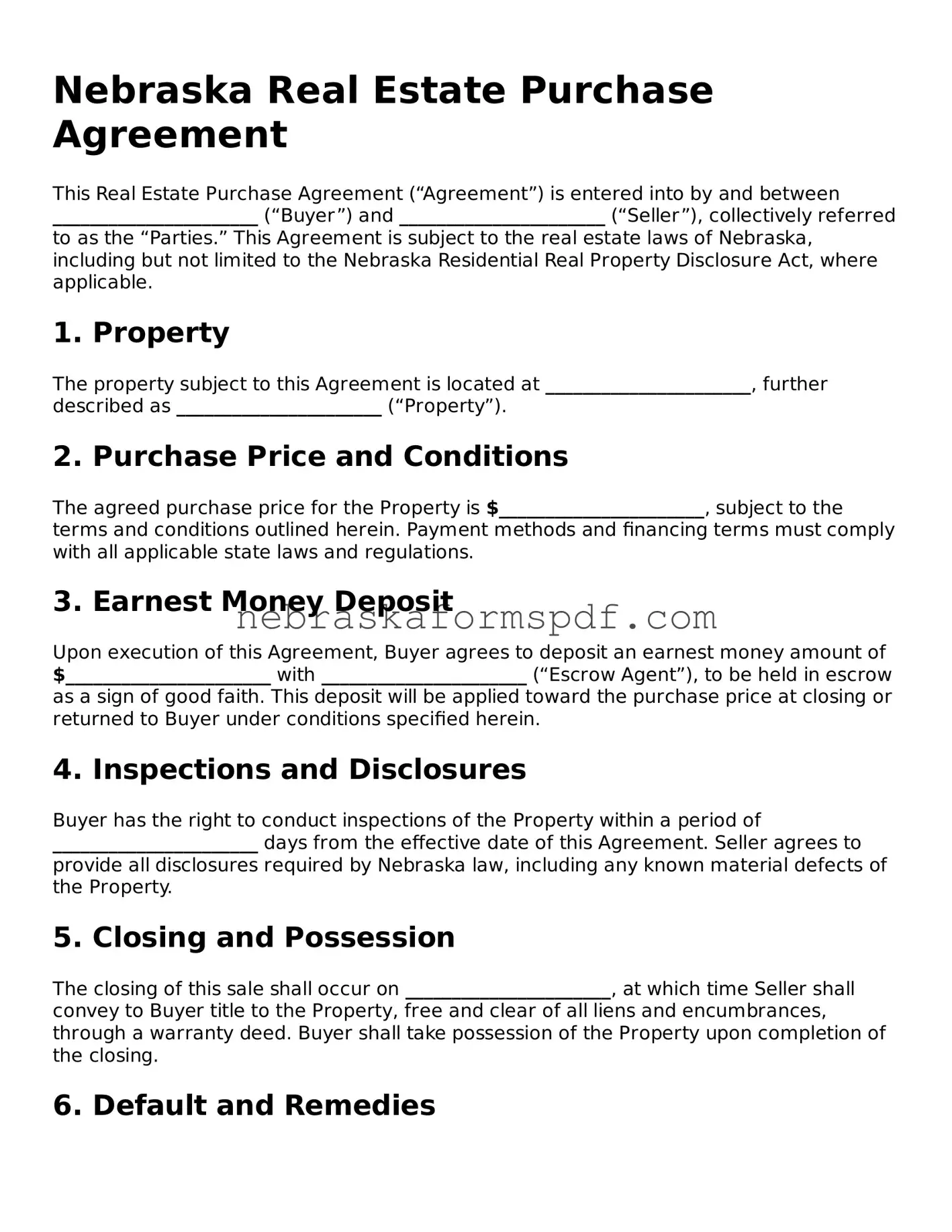Fillable Nebraska Real Estate Purchase Agreement Template
The Nebraska Real Estate Purchase Agreement form is a legally binding document that outlines the terms and conditions of the sale and purchase of real estate in Nebraska. It serves as a contract between the buyer and the seller, detailing the agreed-upon price, property description, and other essential terms. This form is crucial in ensuring a clear understanding and smooth transaction between the parties involved.
Open Editor Here

Fillable Nebraska Real Estate Purchase Agreement Template
Open Editor Here

Open Editor Here
or
Click for PDF Form
Don’t exit with an incomplete form
Finish Real Estate Purchase Agreement online using a quick, guided process.